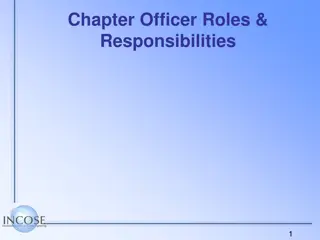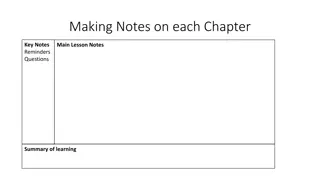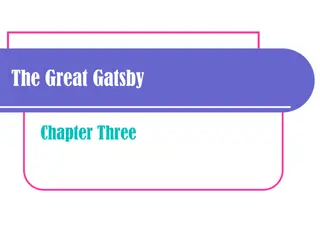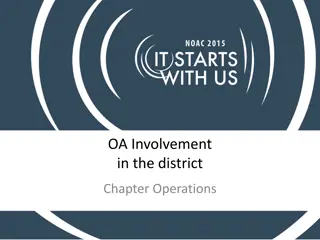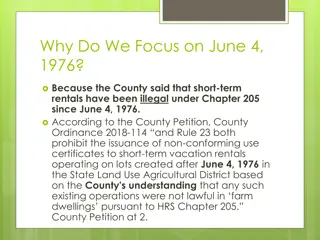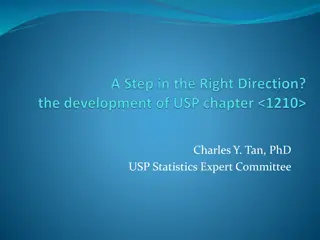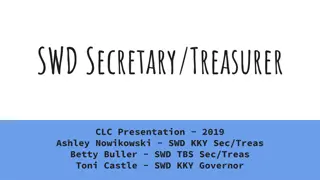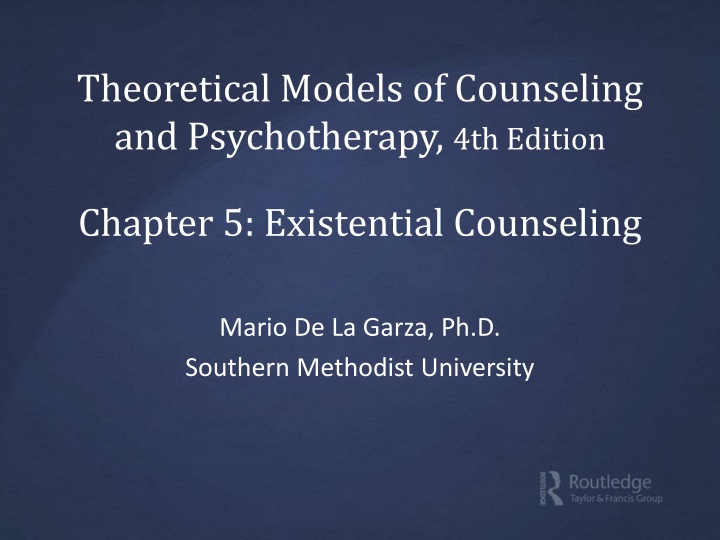
Existential Counseling: Philosophical Foundations and Psychological Practice
Explore the profound philosophical underpinnings of existential counseling, delving into themes such as ontology, responsibility, and freedom. Understand the structure of the psyche, the innate givens of life, and the essential aspects of being according to existential philosophy. Learn how existential therapists navigate the complexities of human existence through the lens of self-awareness and self-affirmation.
Download Presentation

Please find below an Image/Link to download the presentation.
The content on the website is provided AS IS for your information and personal use only. It may not be sold, licensed, or shared on other websites without obtaining consent from the author. If you encounter any issues during the download, it is possible that the publisher has removed the file from their server.
You are allowed to download the files provided on this website for personal or commercial use, subject to the condition that they are used lawfully. All files are the property of their respective owners.
The content on the website is provided AS IS for your information and personal use only. It may not be sold, licensed, or shared on other websites without obtaining consent from the author.
E N D
Presentation Transcript
Theoretical Models of Counseling and Psychotherapy, 4th Edition Chapter 5: Existential Counseling Mario De La Garza, Ph.D. Southern Methodist University
History Response to: Compartmentalization Determinism Loss of awareness of self Reductionism Existential philosophy is the guiding force in theory and treatment.
Rollo May Anxiety-provoking childhood home Nervous breakdown led to change in life Influence of Adler Influence of Tillich
Philosophical Underpinnings Ontology: the study of being Phenomenology: each person has a unique, subjective perspective of the world and self Responsibility: for one s own being Freedom Choice Accountability
Function of the Psyche Potential to have the I-Am experience To inevitably realize one s own being/existence Existence precedes essence To preserve and assert one s existence through the unfolding of one s potential (master motive) Innate in each person
Structure of Psyche: Givens of Life Conditions present that threaten existence: Death threatens the master motive. Freedom threatens ground/structure. Isolation threatens protection/merging/being part of a larger whole. Meaninglessness threatens meaning. Humans are innately endowed with the potential to perceive threats to existence and generate anxiety.
Structure of the Psyche Dasein: the whole of one s approach to existence Includes structure (whole person) Includes function (approach to existence) Levels of Awareness Self
Mays Essential Aspects of Being Phenomenological centeredness Potential to exist with other beings without losing centeredness Awareness as self-consciousness Awareness as vigilance Anxiety as the struggle against nonbeing Courage to self-affirm
Dasein Every moment, one is being (structure and process) When one responds to anxiety with defenses that deter a person from reaching one s full potential, one is experiencing existential guilt. Awareness of Ultimate Concern Anxiety Defense Mechanism
Role of the Environment Environment imposes limits and influences one s being Four interacting dimensions Umwelt (physical world) Mitwelt (interpersonal world) Eigenwelt (personal world) Uberwelt (spiritual world)
Role of the Environment Cosmic destiny limits imposed by laws of nature Cultural destiny limits imposed by preexisting social patterns Circumstantial destiny limits imposed by sudden situations
Personality Development Stage 1: fusion Experience Umwelt and limited Mitwelt Stage 2: separation Begin to experience Eigenwelt Stage 3: satellization Mitwelt influences Eigenwelt Stage 4: similarity One can experience Uberwelt
Healthy Functioning Authenticity ongoing striving as one repeatedly confronts decisions over the span of one s existence Awareness of anxiety Confrontation of anxiety courageously Use of anxiety constructively Latitude for inauthenticity
Unhealthy Functioning Living inauthentically Excessive use of defense mechanisms Denial/avoidance of the givens of life Preoccupation with the givens of life Too little or too much anxiety Lack of courage Graceless, inefficient mode of coping with anxiety
Personality Change Process Change occurs through increased authenticity Decreased use of defense mechanisms Affirmation of fullness of living Use of anxiety in a creative manner This occurs in the context of an authentic relationship
Clients Role Willing to explore givens of existence Willing to face anxiety that comes from awareness Willing to experiment with different responses to anxiety
Counselors Role Provide an authentic relationship Understand and empathize with the client s experience Sensitively point out inauthenticity of client to client Have a continuous searching attitude Be aware of own struggle to exist
Stages & Techniques Use of silence Constructive questions Interpretation Attention to boundary situations Focus is on the process of gaining a true understanding of the client s Dasein and encouraging the client to confront the givens of existence in a courageous manner.
Recent Developments in Mental Health Nature/Nurture - Umwelt and Mitwelt - Environmental factors are not as important as the individual s subjective interpretation of, and choices regarding, them DSM 5 Diagnosis Destructive to holistic view of the person Use is for insurance purposes and to communicate with other professions
Recent Developments in Mental Health Pharmacotherapy Used in extreme circumstances Managed Care and Brief Therapy Elements of existential counseling can be used in brief therapy Elements of managed care are antithetical to theory
Diversity The philosophical underpinning of phenomenology stresses the importance of understanding the client s perspective. Culture: Givens of existence applicable to people across all cultures and must be understood and explored from the client s experience
Gender and LBGTQ Issues Emphasis on the client s own identity and meaning making process involves roles, attributes, attitudes, feelings, and behaviors that are distinctive in the individual s culture
Spirituality Rich philosophical foundation exploring humans and their relationship with higher power (see Kierkegaard, Nietzsche, etc.) More recent existentialists also integrate spirituality: Frankl s logotherapy Deurzen s Uberwelt
Recent Developments in Mental Health Effectiveness of psychotherapy Largely left out of the evidence-based/validated approaches literature - Proponents stress that striving for authenticity cannot be reduced nor measured
Weaknesses of Theory Lack of research on efficacy Difficult to teach to counseling students Lofty and complicated Beyond evaluation Lack of structure Seems mysterious and vague
References Fall, K. A., Holden, J. M., & Marquis, A. (2023). Theoretical models of counseling and psychotherapy (4thed.). Routledge.

